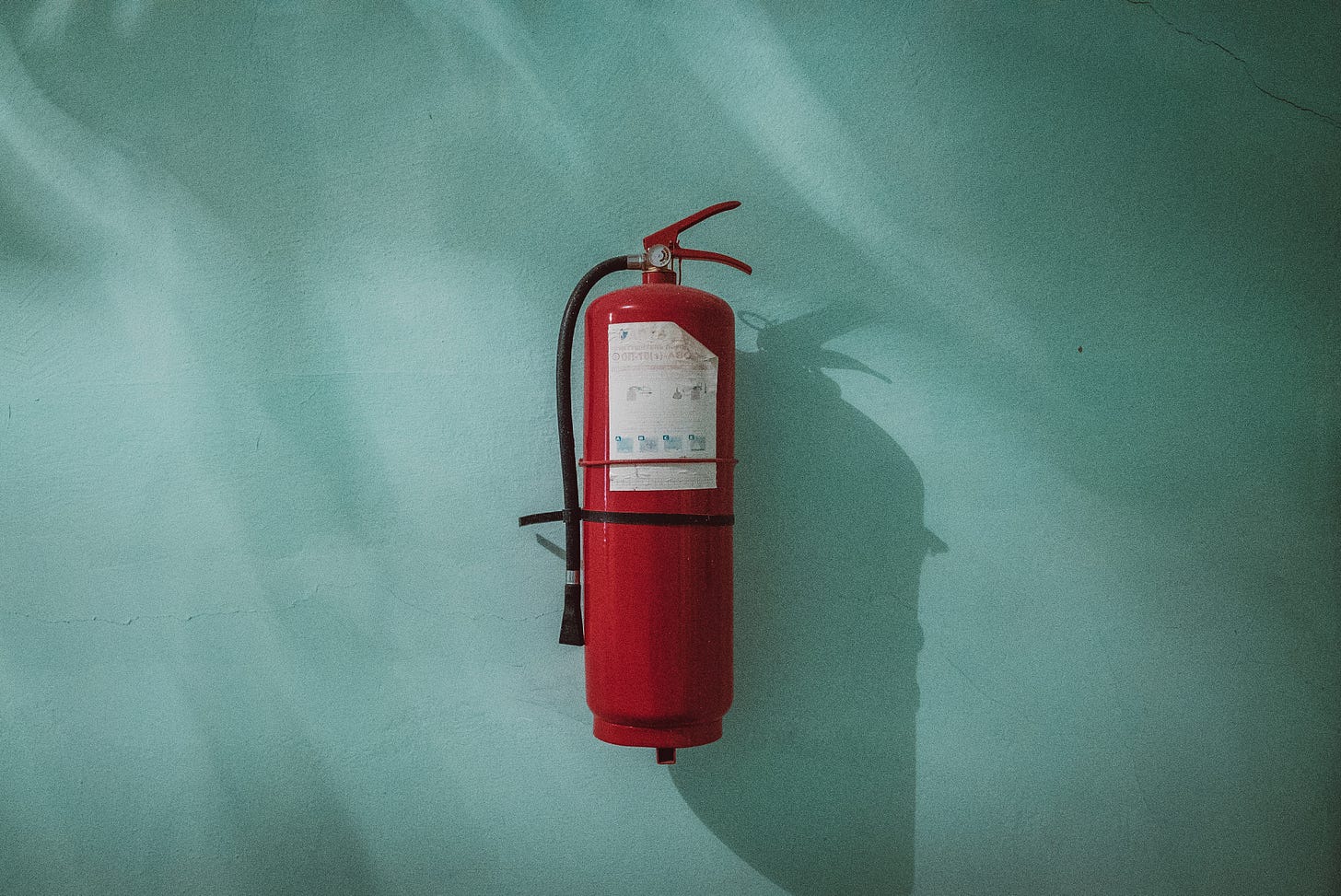
Last weekend, I spent the weekend in Pacifica with a group of friends on a self-led retreat. We’ve been meeting for occasional brunches over the last several months, connected in between by a What’s App chat that we called Shine Theory. Shine Theory is a term created by Aminatou Sow and Ann Friedman, co-hosts of the podcast Call Your Girlfriend. Here’s their definition:
Shine Theory is an investment, over the long term, in helping someone be their best self—and relying on their help in return. It is a conscious decision to bring your full self to your friendships, and to not let insecurity or envy ravage them. Shine Theory is a commitment to asking, “Would we be better as collaborators than as competitors?” The answer is almost always yes.
This retreat was a rededication to creating that safe space for ourselves and each other to rise the daily commitment of being our best selves. We dug into the discomfort of seeing where we each got into our own way or were allowing the demons from our past to revisit our present, all while eating a ton of snacks and rewatching Beyonce’s Homecoming for inspiration to level up. It was a safe space to let proverbial hair down and I loved every moment of it even amid processing the rude tarot reading that is calling on me to give up my lingering perfectionism.
And then on Sunday I came back to the world to find chaos and tragedy: a helicopter crash that killed Kobe Bryant and his teenage daughter along with seven others and a rapidly escalating global viral outbreak, a history-making impeachment trial as the backdrop, and a major earthquake in the Caribbean a couple of days later. So I’ve had safety on my mind, especially when thinking about the future of belonging.
It’s easy to focus on safety in only physical terms like freedom from violence or disaster preparedness. But now more than ever, we have turned the notion of safety in numbers on its head. The growing FIRE movement brings together people united in their desire to leave full-time employment, either because of the pull of other pursuits or the push out of the growing ravages of full-time employment. The Family Independence Initiative fuels an expanding movement toward investing in families who in turn build community with other families to propel economic and social mobility.
Whether using social media as a place to partake in shared grieving over the loss of an sports icon or giving sexual assault survivors public permission to feel the complex and conflicting emotions of being triggered by seeing Kobe Bryant’s name blanketed everywhere amid the public processing of a tragic crash, we are seeing ways in which the future of belonging is redefining where we find safety, who we find it with, and how we find safety in an increasingly connected world.
Mental health destigmatization allows more and more people to move out of the isolated shadows to find psychosocial safety in the company of others and avoid suffering in silence. Mental health startup Coa is taking this one step further by aiming to build mental fitness by shifting the narrative around therapy through community. Henry Health is a startup serving the mental health needs of a major underserved population: African American men. By building a culturally sensitive community that counters self-imposed and societally reinforced isolation, the company hopes to lessen the burden of mood disorders and burnout by building a safe environment to be vulnerable.
We also see people seeking and finding a safe haven in virtual environments. Users on Reddit have shared anecdotes about how using Vive VR helped them recover from depression. Gamer grandpas also play Fortnite with the youngest members of Gen Z to address the loneliness and boredom that can accompany aging when it’s not possible to have physical connection with loved ones.
The US Centers for Disease Control and Prevention has recognized that even quarantine requires accounting for belonging, incorporating accommodations for staying on top of work and school as well as paying for essentials to better ensure patients don’t break quarantine.
Wildly popular subReddit AITA, meaning Am I the Asshole? crowdsources not just etiquette, but identifies and co-creates rules to live by that save all of us from being subjected to future asshole behavior that make us feel like we are not part of the in-crowd or may be unfairly subjected to some kind of abuse or poor behavior. Instagram accounts like tindernightmares and byefelipe allow women to both commiserate over dates from hell and raise awareness of potential threatening behaviors they encounter so that women can date more safely and maybe with less cringing.
Even though we can reimagine safety and belonging through different lenses — emotional, psychological, financial — it’s indisputable that physical safety will still be an essential need. Anti-rape apps are the controversial chimera that has emerged at the intersection of technology and greater awareness of rape culture and its impact on safety. The mobile app Watchoverme calls itself the “Waze of personal safety,” hearkening comparisons to the crowdsourcing for police stops and traffic jams to neighborhoods where harrassment and sexual assualt have been reported.
Callisto aims to merge data and crowdsourced reporting for college students reporting sexual assault. Users can document the incident with time-stamped recording of their account. In addition to typical criminal reporting processes, Callisto allows users to opt into “matching” where the app looks for similarities across multiple incidents to identify repeat offenders who have not yet been identified and apprehended. If the app finds a match, they alert university authorities. In this sense, users “belong” to a community connected by their shared trauma building a safer world for women around them without knowing who each other are.
I’m still figuring out how I want to structure these weekly glimpses into my brain on this subject. I’m welcoming your comments and feedback. I’ll leave you with a question to contemplate.


